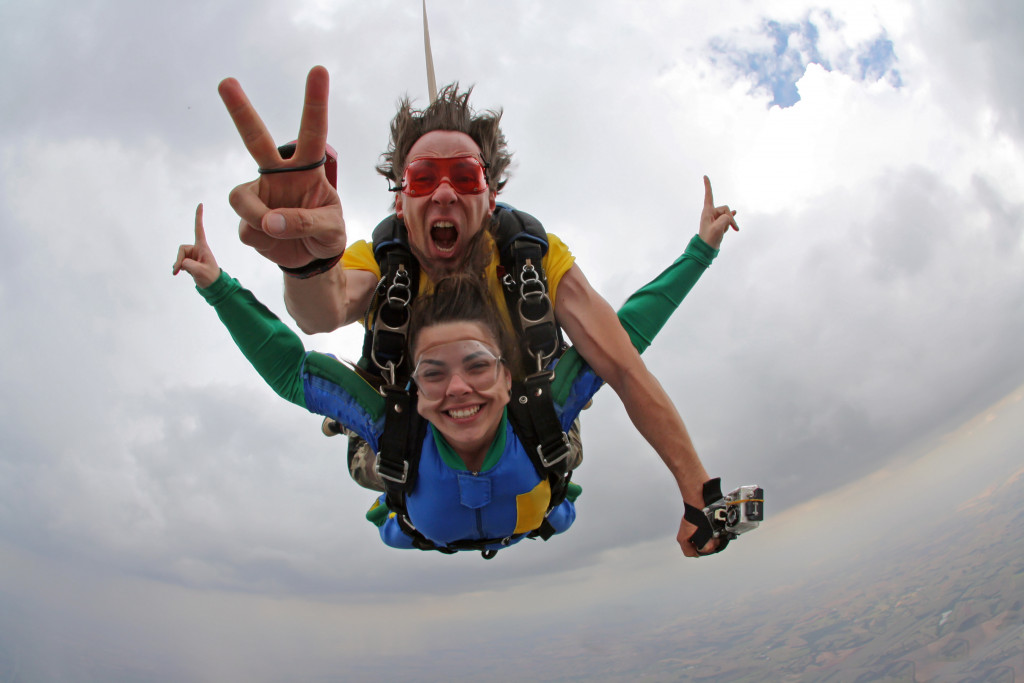- Investing in the correct gear and equipment reduces injury risk in extreme sports.
- Training, skill development, and listening to body signals are essential for safe and effective participation.
- Sufficient rest and consultation with a healthcare professional can optimize performance and prevent health complications.
- Proper nutrition and addressing health issues promptly contribute to overall well-being and enhanced performance.
- Attuning to body signals and halting activities when necessary can prevent serious injuries and ensure safety.
Extreme sports offer an exciting, exhilarating, and unique experience for those who crave adventure. These sports include snowboarding, mountain biking, skateboarding, and parkour, to mention a few. They require significant physical exertion and skill, and athletes who participate in these activities must be mindful of their health and well-being.
This blog will explore some tips on how extreme sports enthusiasts can safeguard their health and ensure that they perform better while pursuing their passion.

Invest in the Right Gear and Equipment
To perform better and reduce the risk of injury, extreme sports enthusiasts must invest in the correct gear and equipment. Protective gear like helmets, knee pads, and elbow pads are essential to prevent severe harm. A helmet can prevent head injuries and save your life in the case of an accident. Ensuring that equipment is in good condition and tested before use is essential to preventing injury.
Right Equipment
Besides protective gear, having the right equipment for your chosen sport is crucial. For example, if you are a surfer, investing in a good quality surfboard and wetsuit can make all the difference in your performance and enjoyment of the sport. Similarly, skiers must have well-fitting boots and properly waxed skis to maximize their speed and control on the slopes.
Train and Develop Your Skills
The best way to reduce the risk of injury when engaging in extreme sports is to develop your skills and abilities. Take classes that improve your physical fitness, motor skills, and balance. Additionally, practice in a safe environment with instructors or friends and gradually increase the difficulty level to avoid potential accidents. This is a crucial step to prepare for more challenging activities that could result in harm.
Listen to Your Body
Extreme sports require a high level of physical exertion, and paying attention to your body’s signals is crucial. Pushing yourself beyond your limits can result in fatigue, burnout, and injuries. Take breaks, stay hydrated, and listen to any pain or discomfort. Pushing through the pain may seem admirable, but it’s not worth risking your health and well-being.
Get Enough Rest
Your body needs sufficient rest to recover from physical exertion and to prepare for future activities. Most people require at least seven hours of sleep per night to feel well-rested and prepare their bodies for the next day’s activities. Inadequate rest could lead to mental fatigue, mood swings, and other health complications that could decrease performance. Be mindful of your restorative activities like sleep or meditation and similar.
Consult a Professional
If you’re having trouble sleeping or feeling rested, seeking help from a healthcare professional is essential. They can provide personalized solutions and address any underlying medical conditions causing sleep disturbances.
Follow the Right Nutrition
Eating the right nutrients is essential to keeping healthy when participating in extreme sports activities. It’s crucial to consume enough calories to keep your body fueled and hydrated, particularly when engaging in sports requiring high energy and exertion. Refueling after exercise is essential by consuming the correct amount of carbohydrates, protein, and water to build muscle and tissue. A professional nutritionist can guide you in calculating the right quantity and intake of nutrition and supplements.
Deal with Health Issues
If you have a chronic health condition or are dealing with an illness, getting enough rest is crucial for your recovery. Speak to your doctor about finding the right balance between rest and physical activity. If you have problems with your lower back due to an accident, visit a reputable chiropractor care clinic.

Listen to Your Body
It’s essential to tune in to your body before, during, and after engaging in any extreme sports activities. Be mindful of any signs of discomfort, pain, or fatigue, like the feeling of dehydration, nausea, dizziness, or weakness. Stop immediately if these symptoms occur; payment and rest are vital to recover and improve performance. It’s essential to take the time to recover completely before returning to action.
Serious Injuries
If you do not listen to your body and continue pushing yourself, you may cause serious harm that could require weeks or months of rest and rehabilitation. This will delay your progress and hinder your ability to enjoy extreme sports in the future.
Extreme sports enthusiasts can enhance their performance and ensure their safety by following these simple guidelines. The guidelines enumerated in the article are the main lessons you can take on board. If you are an extreme sports athlete, you owe it to yourself and other athletes to stay safe, healthy, and fit. By following these tips, you can have an enjoyable and positive experience while pursuing your passion.

